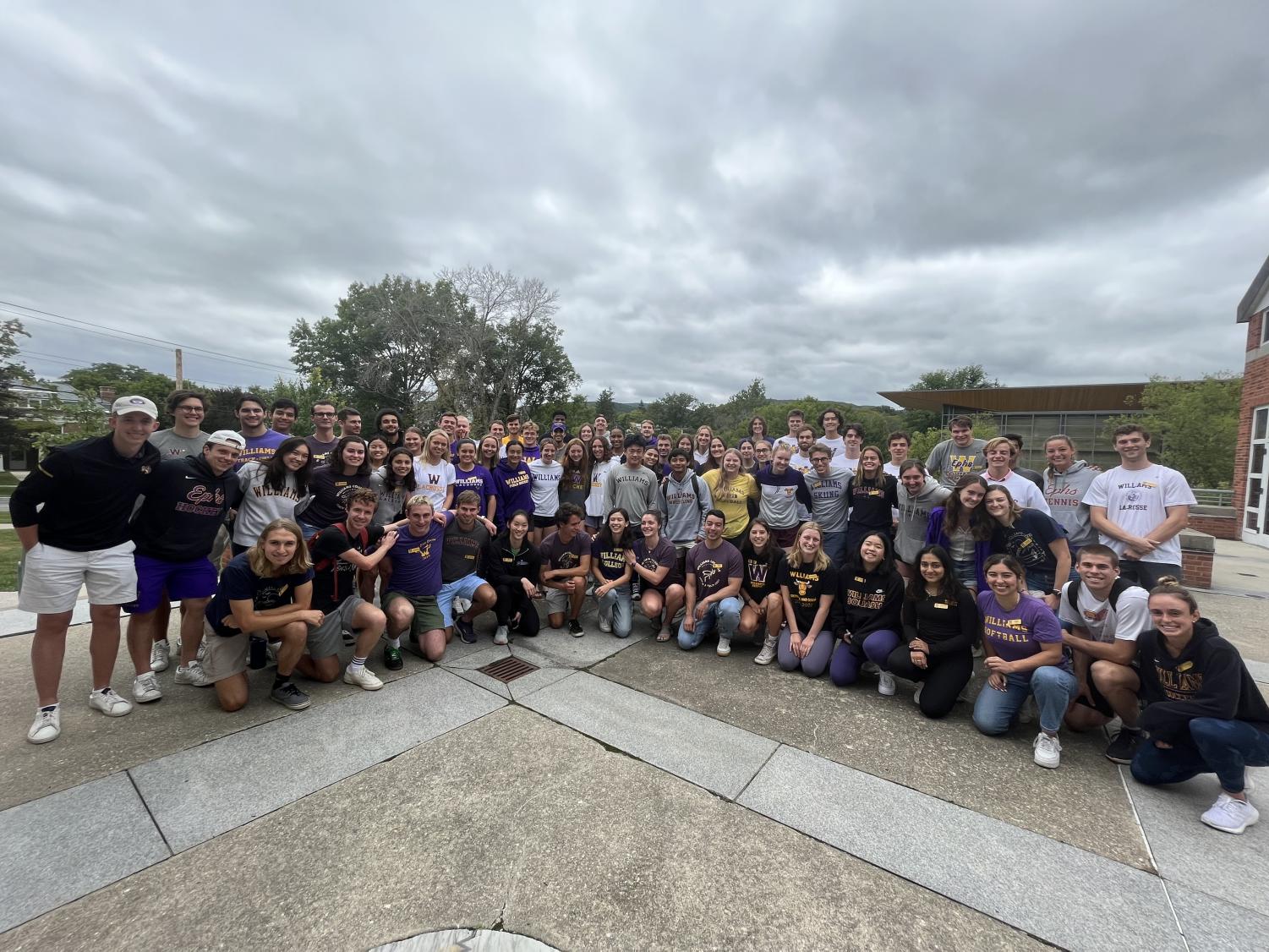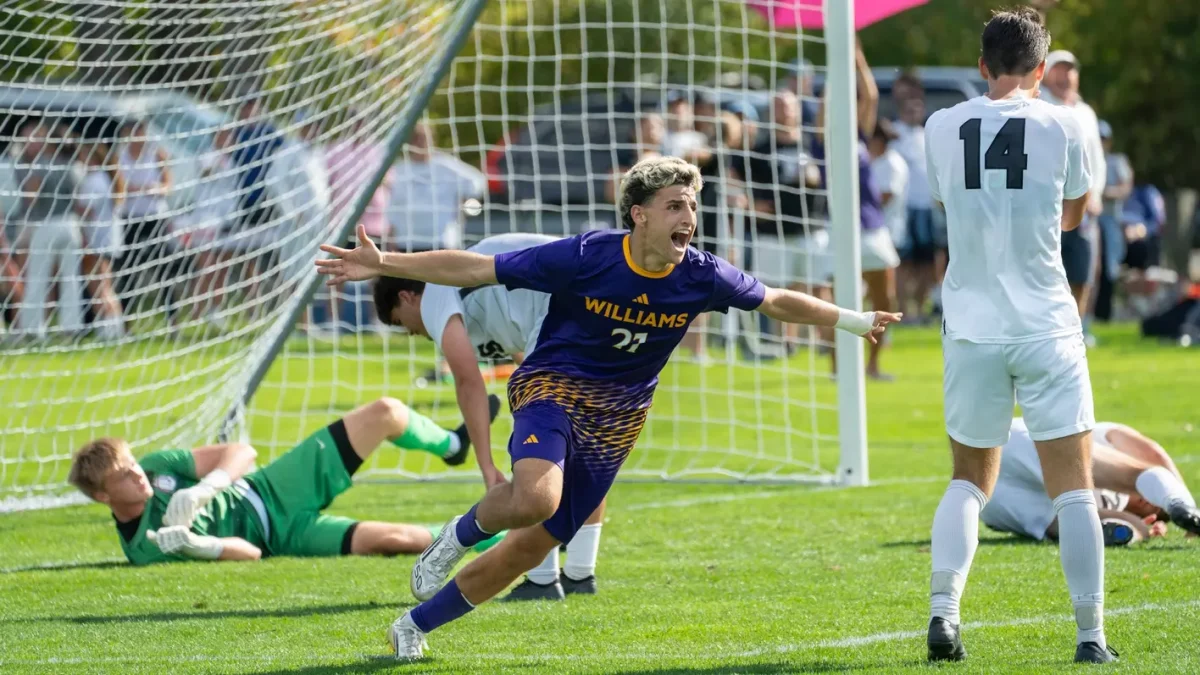A look inside fall captains’ training
September 21, 2022

Three days before the start of the academic year, the captains of varsity athletic teams arrived on campus for a training hosted by the athletic department. Captains’ training — much like the end-of-summer training for Junior Advisors, House Coordinators, and Ephventure leaders — seeks to prepare a new group of students for their leadership roles.
“We’re looking to provide all of our leaders with knowledge of the resources on campus and some of the individuals they may need to connect with if something ever comes up on their team,” Associate Director for Student Athlete Services Carolyn Miles said of the program’s goals.
Miles, who introduced the program at the College a decade ago and still oversees it, said that the training is designed to connect captains with each other and athletic department faculty.
The three days of fall training are part of the Ephs Leadership Academy, leadership training from the athletic department throughout students’ time at the College. The academy also provides training for sophomore student-athletes over Winter Study through the Emerging Leaders Program. Ninety varsity team captains attended sessions with representatives from the Chaplain’s Office and Integrative Wellbeing Services (IWS); took part in a diversity, equity, and inclusion (DEI) training; and had a session with Joanna Lohman, a former U.S. Women’s National Team soccer player.
Lohman’s speech to the captains focused on motivation, visualization, and self-talk, and it was well-received by Miles and students alike. Lohman, who is the author of Raising Tomorrow’s Champions: What the Women’s National Soccer Team Teaches Us About Grit, Authenticity and Winning, works with the women’s soccer team at George Mason University, and has been involved in the national team’s fight for equal pay.
As an athlete who will not compete in-season until the spring, Isabel Arvelo ’23, a co-captain of the women’s lacrosse team, said Lohman’s talk resonated with her. “[Lohman] spoke about the importance of self-talk and visualization to achieve high performance and provided us with specific strategies to recognize and stop negative thoughts that feed into self-doubt,” Arvelo said. “I found this session especially relevant because we are currently in our offseason, so it is crucial for our team to capitalize on this time to train our minds just as much as we are training our bodies.”
Miles emphasized that self-care and empathy were significant themes throughout the days of training. “I want the leaders to know where they can get help if they need it for individuals on their team,” Miles said. “But also, where to get help for themselves because sometimes, in helping others, we forget to care for ourselves.”
In addition to Lohman’s speech, Arvelo said that the DEI training — which was led by Associate Athletic Director for Inclusion and Compliance Tommy Verdell — sparked important conversations among the upperclassmen on her team. “[The session] really brought to light the importance of having protocols in place to make sure we have a plan of action to support our teammates when something happens that makes them feel unsafe or uncomfortable,” Arvelo said. “Everyone on the team is responsible for building an inclusive team culture, but if the seniors do not explicitly make it a priority, it sets a poor example for the underclassmen and the program overall,” she said.
Gus Nordmeyer ’23, a co-captain of the men’s crew team, said that the wide range of speakers at the sessions added to his takeaways from captains’ training. “Hearing representatives from different departments was a unique opportunity, because their information was tailored specifically to services athletes might want to utilize,” he said.
Arvelo described the existing programming as fairly comprehensive, but she added that there is room for a more integrated style of learning that addresses the many types of challenges that may arise leading a sports team. “Having all the captains in one space is a unique opportunity, so I think it would be an ideal time to share things like leadership and conflict resolution strategies,” she said.
Nordmeyer said that he also saw deep value in the connections with other students. “One of the most productive elements of captains’ training was getting to know other captains better,” he said. “Learning about other people’s sports, team dynamics, challenges, and strategies was immensely helpful… Building relationships with captains of other teams is the first step towards a more cohesive Williams athletic community.”








